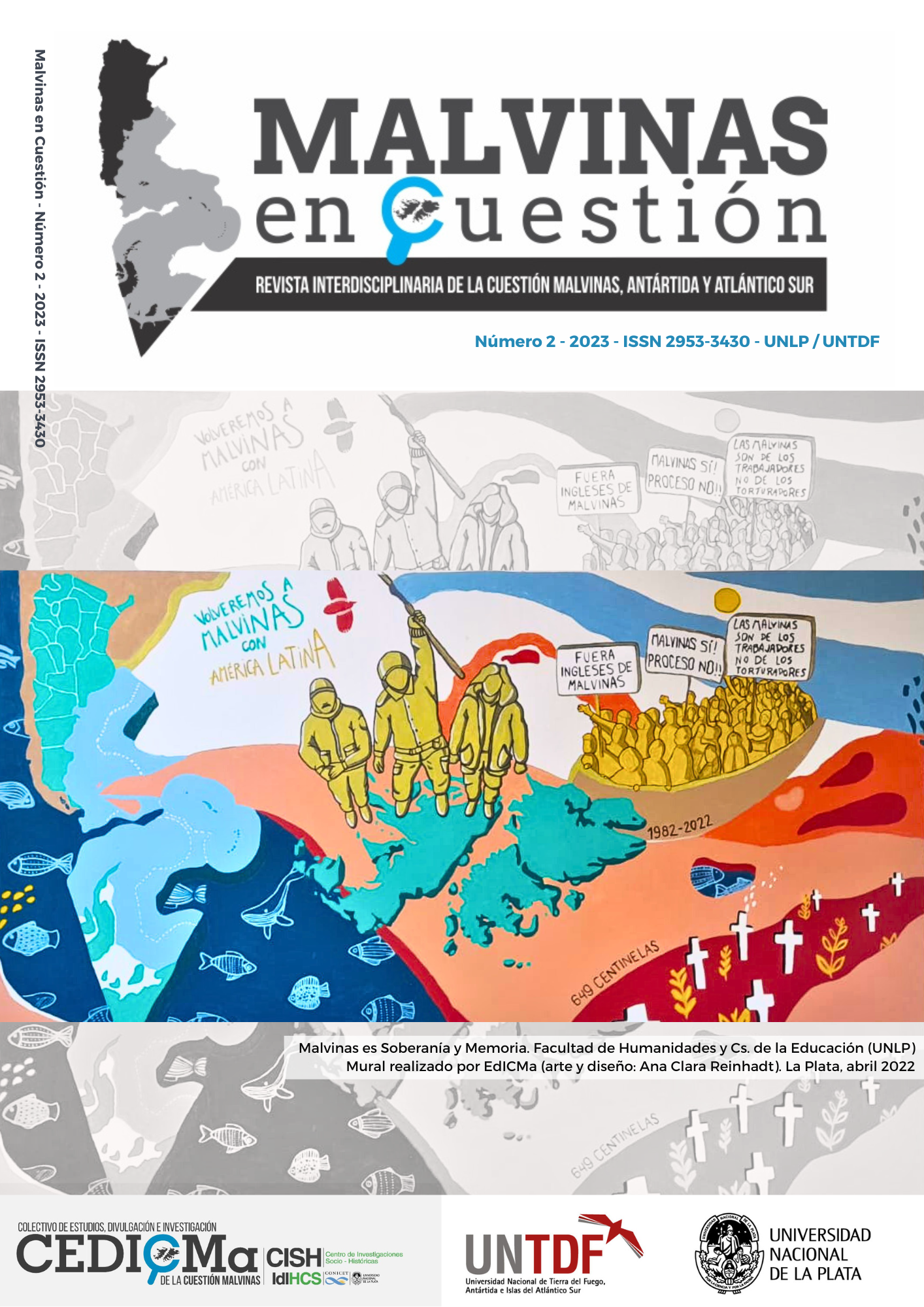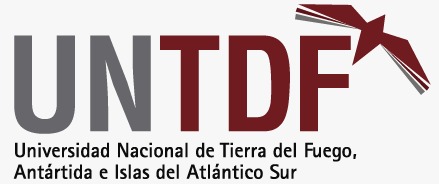Malvinas y las narrativas de derechos humanos
DOI:
https://doi.org/10.24215/29533430e019Palabras clave:
Malvinas, narrativas, derechos humanos, memoria abiertaResumen
La Guerra de Malvinas —ocurrida entre el 2 de abril y el 14 de junio de 1982, producto de la decisión de la Junta Militar encabezada por el Tte. Gral. Leopoldo Galtieri— merece ser analizada dentro del contexto político de la última dictadura cívico-militar y las acciones del Gobierno de facto en su intento por legitimarse, perpetuarse y sostenerse en el poder político.
Resulta frecuente referirse al conflicto bélico desde la perspectiva de una gesta histórica nacional o como gesta heroica, al igual que suele referirse a quienes combatieron en las islas como héroes. Sin embargo, estas son representaciones de las que no participan todos los sectores sociales y que opacan la densidad de las narrativas de Malvinas y las disputas por el sentido sobre cómo y qué narrar de la guerra, y sobre las identidades de quienes han participado del conflicto.
Si bien es irrenunciable el reclamo por la soberanía nacional y la pertenencia legítima de las Islas Malvinas a nuestro territorio, es necesario analizar la guerra desde una perspectiva de derechos humanos, reconociendo sus particularidades y las disputas de sentido que existen en torno a las representaciones que los diferentes actores sociales formulan sobre Malvinas.
Descargas
Citas
Canelo, P. (2016). La política secreta de la última dictadura militar argentina (1976-1983). Edhasa.
Constitución de la Nación Argentina [Const.]. (1994). Disposiciones Transitorias. https://www.congreso.gob.ar/constitucionDispTransitorias.php
Esteban, E. (1993). Iluminados por el fuego. Confesiones de un soldado que combatió en Malvinas. Sudamericana.
Jelin, E. (2017). La lucha por el pasado: cómo construimos la memoria social. Siglo XXI.
Kon, D. (1982). Los chicos de la guerra: hablan los soldados que estuvieron en Malvinas. Galerna.
Lorenz, F. (2012). Las guerras por Malvinas (1982-2012). Edhasa.
Perera, V. y Laino Sanchis, F. (2021). Memoria Abierta de Malvinas: archivo, ex combatientes y derechos humanos. Sudamérica: Revista de Ciencias Sociales, 14, 366-397. https://fh.mdp.edu.ar/revistas/index.php/sudamerica/article/view/4666/5563
Risler, J. (2018). La acción psicológica: dictadura, inteligencia y gobierno de las emociones (1955-1981). Tinta Limón.
Schorr, M. (2007). La industria argentina entre 1976 y 1989. Cambios estructurales regresivos en una etapa de profundo replanteo del modelo de acumulación local. Papeles de Trabajo. La revista electrónica del IDAES, 1(1). https://revistasacademicas.unsam.edu.ar/index.php/papdetrab/article/view/865
Descargas
Publicado
Cómo citar
Número
Sección
Licencia
Derechos de autor 2024 Pablo Cristian Fanelli

Esta obra está bajo una licencia internacional Creative Commons Atribución-NoComercial-CompartirIgual 4.0.
Acorde a estos términos, el material se puede compartir (copiar y redistribuir en cualquier medio o formato) y adaptar (remezclar, transformar y crear a partir del material otra obra), siempre que a) se cite la autoría y la fuente original de su publicación (revista y URL de la obra), b) no se use para fines comerciales y c) se mantengan los mismos términos de la licencia.





















